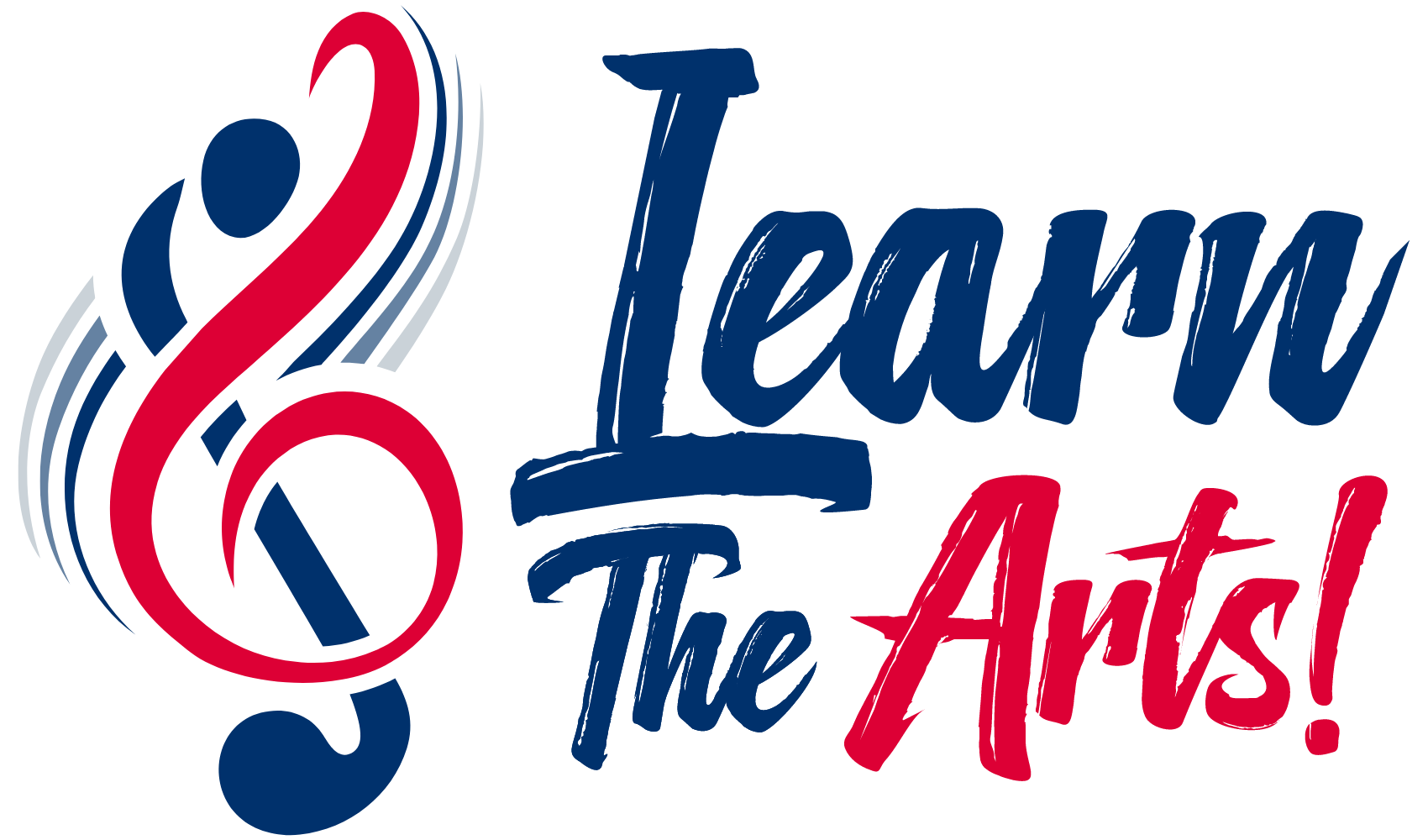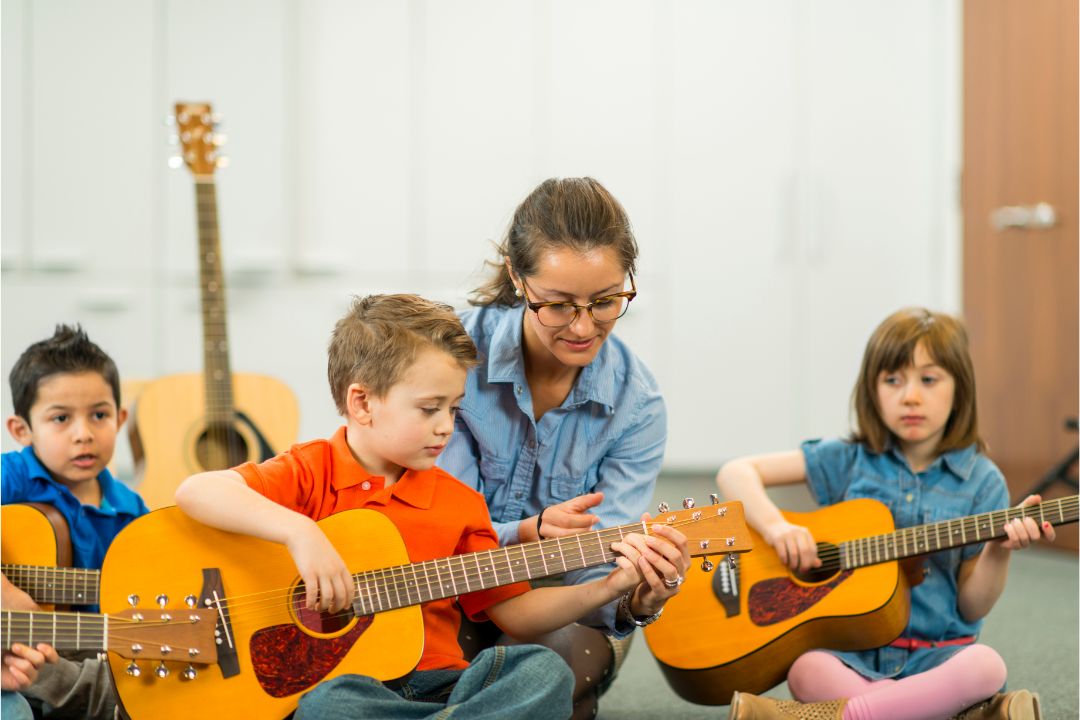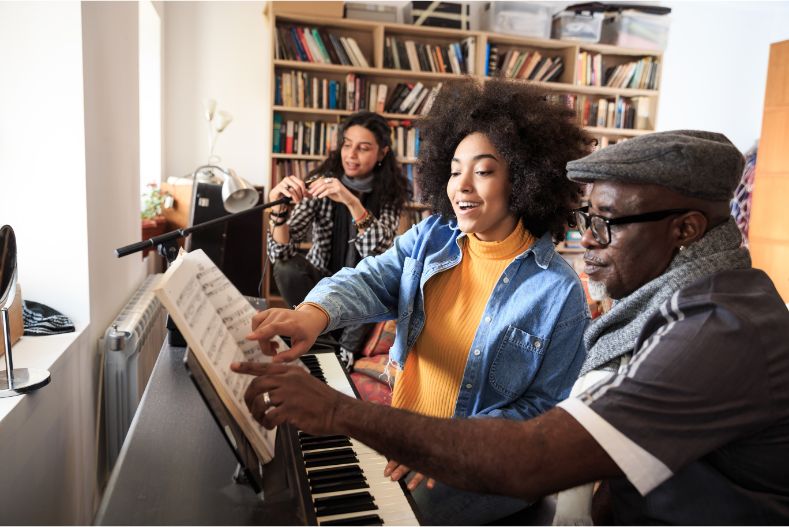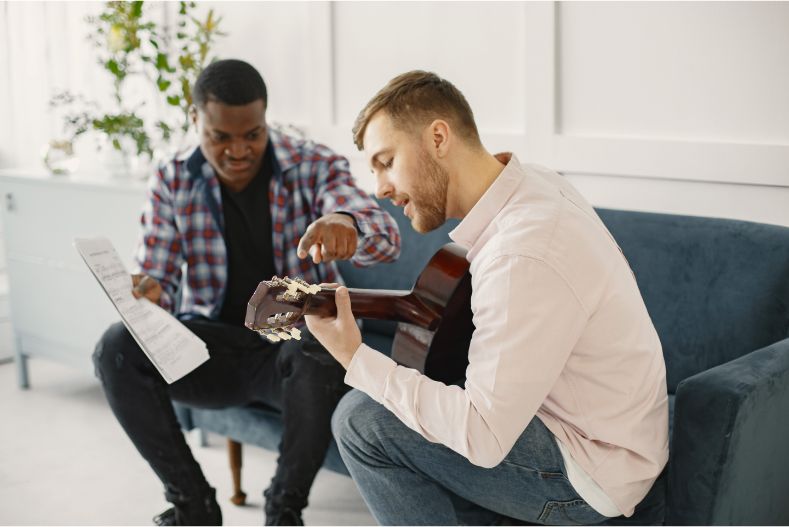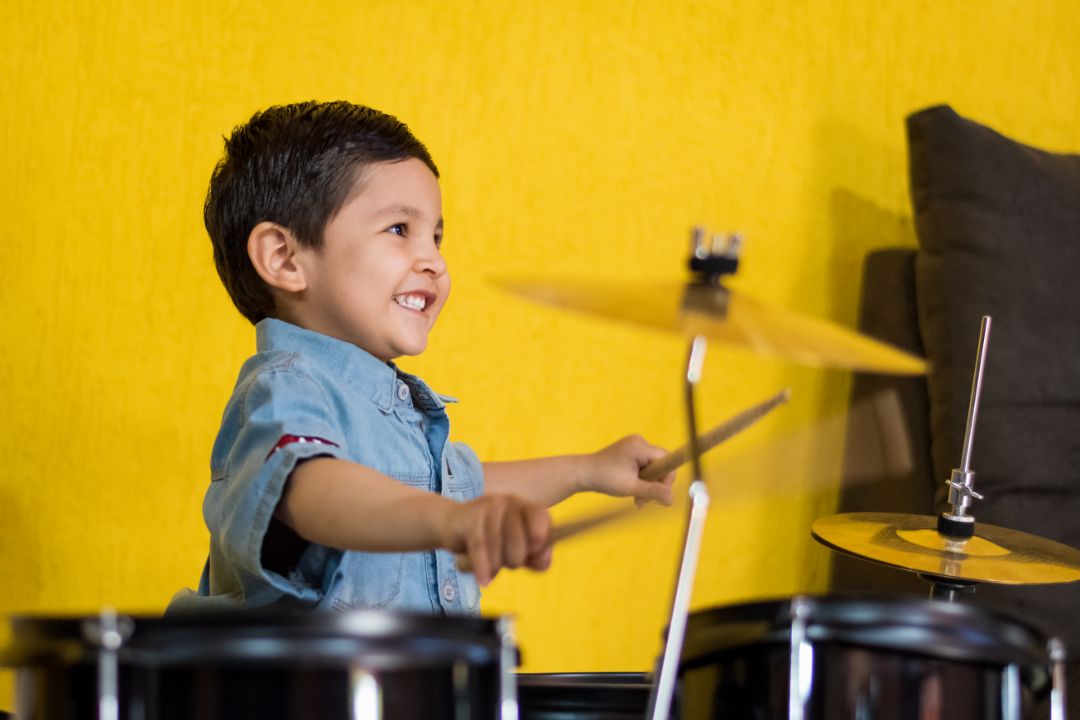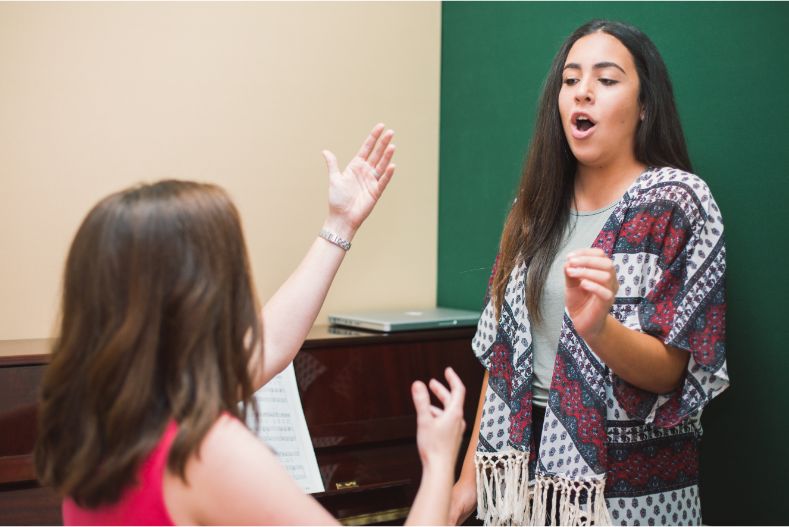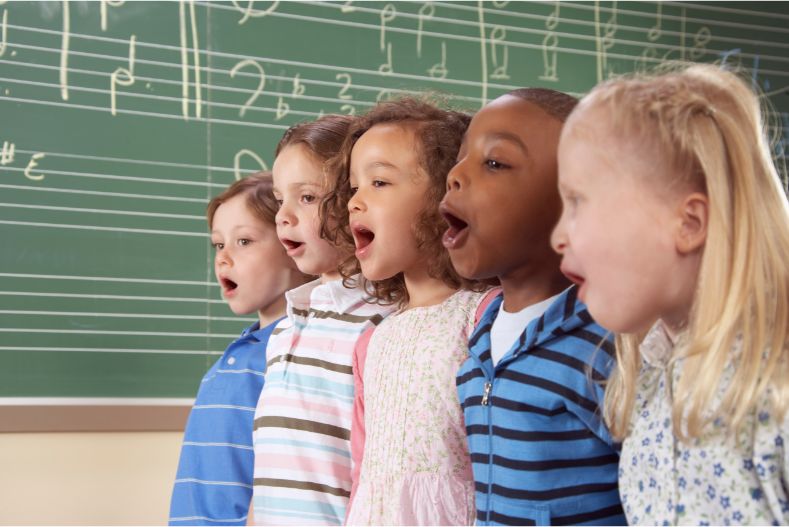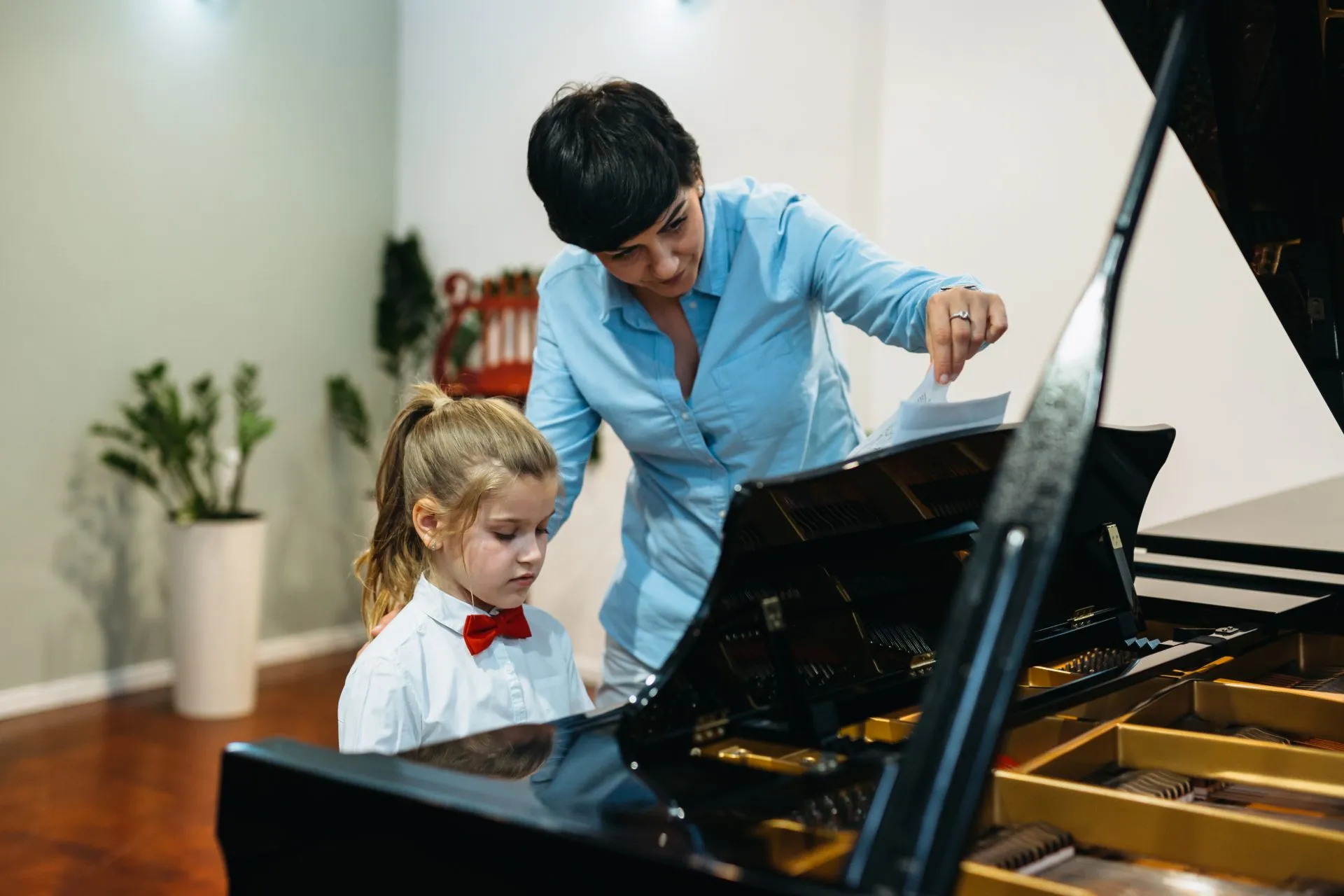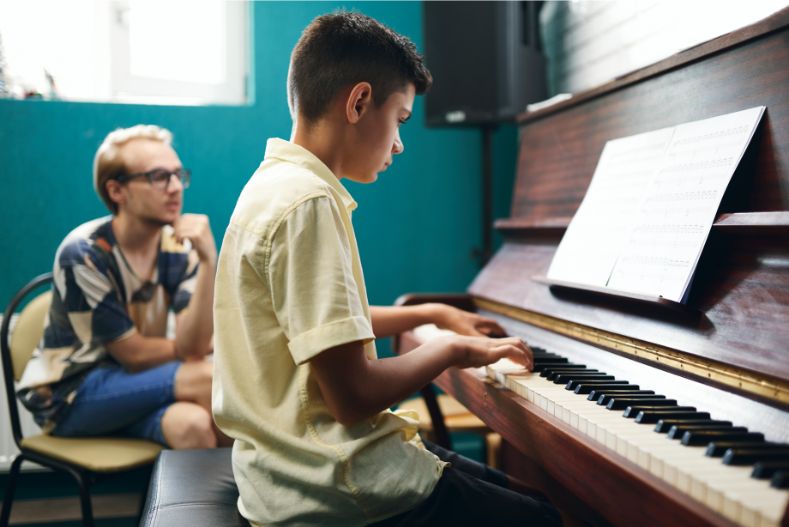Have you ever thought about joining a music class and making beautiful melodies with others? Music has a magical way of bringing people together, and when you learn in a group, this magic amplifies. Whether you’re young or young at heart, group music lessons can open up a world of benefits that go beyond just learning to play an instrument.
“Music can heal the wounds that medicine cannot touch,” goes an old saying, and there’s so much truth in it. In a music group, you learn more than just notes; you learn coordination, express your emotions, and build patience. Learning music with peers isn’t just about making sounds; it’s about creating harmony both in music and life.
This article will guide you through ten incredible benefits of group music lessons at any age. From boosting brain power to reducing stress, there’s something for everyone. Let’s dive into this musical journey and see how playing in a group can enrich your life in ways you never imagined!
Introduction
Music lessons are a treasure trove of benefits, waiting to be discovered by individuals of all ages. Whether you’re a curious 5-year-old or an enthusiastic 75-year-old, the world of music holds something special for everyone. Music classes aren’t just about mastering instruments; they are about enhancing your brain, boosting your body, and improving your overall well-being.
In group music lessons, students experience a shared journey that nurtures both the mind and soul. “Music is a language that doesn’t speak in particular words. It speaks in emotions,” and through these classes, individuals learn to convey expression and passion. The joy of learning and playing music, whether it’s through piano lessons or other instruments, creates a strong sense of accomplishment and achievement.
These lessons are more than just music education programs; they are pathways to numerous benefits that impact daily life. From honing valuable motor skills and enhancing brain function to improving mental health and communication skills, the advantages are plentiful. As you participate in group music lessons, you’re not only adopting a rewarding hobby but also embarking on a journey of lifelong learning and positive transformation.
1. Boosts Brain Power
Taking group music lessons is fantastic for boosting brain power across all ages. Whether you’re young or young at heart, engaging with melodies and rhythms helps improve memory, attention, and problem-solving skills. Music classes encourage your brain to work in new and exciting ways.
“Music is the language of memory,” and scientific studies have shown that learning music strengthens the brain connections. This happens as students play instruments or sing in harmony, allowing their minds to process complex patterns and tune into the beat. The mental gymnastics involved in understanding notes, timing, and coordination is excellent for cognitive function.
Young music students particularly benefit as these lessons contribute to their developing minds, enhancing their ability to focus and think critically. Meanwhile, older adults find that music helps keep their brains sharp, maintaining mental agility.
“Music can change the world because it can change people.” Whether it’s tapping your feet to a lively tune or mastering a beautiful piece on the piano, music education programs offer numerous benefits for cognitive health, making daily practice not only rewarding but truly impactful.
2. Builds Discipline and Patience
Taking group music lessons offers a wonderful opportunity to nurture discipline and patience. Learning an instrument requires regular practice and focus, making it a great way to develop these valuable skills. As music students attend music classes, they quickly learn the importance of setting goals and understand that success doesn’t happen overnight. This process of goal-setting and delayed gratification is crucial not just in music education but also in handling school, work, and daily routines.
“Music is the shorthand of emotion,” said Leo Tolstoy, and indeed, the journey of learning music is filled with emotions that teach discipline and patience. The consistent effort needed to master an instrument encourages students to be disciplined in their approach, while waiting for progress teaches patience.
In group music lessons, learners often motivate each other, creating an environment where perseverance is both demonstrated and encouraged. As they work towards achieving their musical goals, they develop a strong sense of accomplishment. Thus, participating in group music lessons not only enhances musical abilities but also instills lifelong skills of discipline and patience, benefiting all areas of life.
3. Improves Coordination and Motor Skills
Participating in group music lessons is an excellent way to boost coordination and motor skills for individuals of all ages. Whether you’re a child, adult, or senior, playing music involves intricate hand-eye coordination. For children, music classes support the development of fine motor skills as they learn to maneuver instruments and read music simultaneously.
As one progresses with daily practice, playing an instrument helps keep fingers nimble, which is particularly beneficial for adults and seniors. The continuous movement required in piano lessons or other instrumental classes ensures that reflexes remain sharp.
Music students often experience a noticeable improvement in coordination over time. It’s amazing how engaging in group music lessons can refine your motor skills while bringing joy and a sense of accomplishment. As one music teacher from the School of Music says, “Music is not just an art, it’s a journey that refines both the mind and body.” Remember, just a small dose of music practice can make a big difference in developing these valuable skills.
4. Strengthens Emotional Expression
Group music lessons are wonderful for helping individuals express their emotions in a creative and healthy way. Whether you are a shy child or a stressed adult, playing music allows you to channel your feelings through beautiful melodies and rhythms. This is especially important in today’s world, where finding a safe outlet for emotions is vital.
A quote from a music teacher might be, “Music gives a soul to the universe, wings to the mind, flight to the imagination and life to everything.” This perfectly captures how music enhances emotional expression.
Participating in music classes fosters emotional growth and self-awareness, enabling music students to better understand themselves and their feelings. This process builds confidence as it provides the individual with a sense of accomplishment and a stronger sense of self.
The shared experience of group music sessions also teaches valuable skills, such as empathy and communication, as musicians must listen and respond to one another’s musical expressions. “Music can touch this emotionally weak state, and change it,” says a musician. Indeed, group music lessons can transform participants, impacting their lives beyond the realm of music.
5. Reduces Stress and Anxiety
Taking group music lessons can be a wonderful way to manage stress and anxiety. Playing music is not only calming and meditative, but it also helps individuals unwind after a long day. Being part of a group setting encourages mindfulness through sound and rhythm, allowing participants to focus on the present moment and forget their worries.
Music classes provide a supportive environment where both beginners and seasoned players can lose themselves in the joy of playing an instrument or singing. As one enters the flow of music, it becomes easier to let go of the day’s stresses. A music student once shared, “Playing in a group makes you feel like you’re part of something bigger, and all your worries just fade away.”
Group music lessons also promote a sense of accomplishment, as each session brings growth and improvement. This positive reinforcement can significantly boost mental health, leading to reduced feelings of anxiety.
As the San Ramon Academy of Music emphasizes, “Music has the power to heal the soul.” By joining these classes, you’re not only learning valuable skills but also nurturing your emotional well-being.
6. Boosts Confidence and Self-Esteem
Taking group music lessons can significantly boost confidence and self-esteem for music students of all ages. Achieving musical goals within a supportive group setting builds a sense of accomplishment and self-worth. Whether it’s mastering a challenging piece or simply hitting the right notes, each small victory is a step towards greater self-confidence.
Performing in front of peers during group music classes, or as part of school of music programs, helps to overcome stage fright and improve public confidence. As students play music together, they learn to share their skills with others, gaining valuable experience in public performance.
Encouragement plays a crucial role in this journey. Teachers and peers at places like San Ramon Academy of Music provide motivation and positive feedback, reinforcing students’ progress and acknowledging their efforts. As one might say, “Every note played is a step towards confidence.”
With support and regular participation in music education programs, students develop a strong sense of achievement, fostering a more confident and assured mindset. Music education is not just about learning scales and melodies; it’s about building a stronger, more self-reliant version of oneself.
7. Encourages Social Connection
Group music lessons are an excellent way to foster friendships among music students of all ages. By learning and playing music together, individuals can build strong bonds and a sense of community. Whether it’s a School of Music or a local music class, students find themselves connecting with others who share their passion.
“Music is the universal language of mankind,” a famous quote by Henry Wadsworth Longfellow, holds true in group lessons that promote teamwork, listening, and cooperation. These valuable skills are essential, not just in music, but in everyday life.
Through group settings, students learn to work together, which not only enhances their musical abilities but also helps improve their communication skills. This interaction encourages participants to understand and appreciate different perspectives, fostering respect and collaboration.
In group music lessons, enjoying the camaraderie of fellow learners increases the sense of accomplishment and decreases stage fright. A supportive group environment can transform a simple class into a meaningful community experience. So join a music class and let the social connections enrich your musical journey!
8. Enhances Academic and Language Skills
Group music lessons do more than teach you an instrument; they also help boost your academic and language abilities. Participating in music classes can support skills like reading, math, and listening comprehension, which are essential for students of all ages.
When you learn music, you improve your rhythm, timing, and pattern recognition. These are key elements that translate into better math and logic skills. For instance, understanding beats and measures can make fractions and division in math classes seem less daunting.
Moreover, music lessons can be particularly beneficial for young learners and ESL (English as a Second Language) students. Engaging with music helps to develop listening skills and pronunciation, making it easier to pick up a new language. With regular practice, students also gain a better grasp of grammar and vocabulary.
As one music teacher puts it, “Music is a universal language that bridges classroom learning with real-world skills.”
By enhancing your academic and language skills through regular music classes, you’re setting yourself up for success in many other areas of life.
9. Offers Lifelong Enjoyment
Music is a wonderful skill that you can enjoy throughout your entire life. Whether you are strumming a guitar, playing the piano, or singing your favorite songs, music can be both a personal pleasure and a shared experience with friends and family.
One of the greatest benefits of music is its versatility. You can enjoy playing music alone, reflecting your personal mood and style, or you can share it with others, creating joyful moments and bonds.
As a creative outlet, music grows with you. No matter your age, you can progress and explore new genres, instruments, and styles, keeping your musical journey fresh and exciting. As one music student said, “Music is like a friend who never leaves your side—it evolves with you.”
Music not only entertains but also soothes the mind and soul, offering a sense of achievement each time you master a new piece. From childhood to old age, engaging in music keeps your brain active, enhances cognitive functions, and provides a sense of accomplishment. So, whether you’re just starting or have been a lifelong music enthusiast, the joy of music is truly endless.
10. Inspires Creativity and Joy
Group music lessons are a fantastic way to inspire creativity and joy in individuals of all ages. These classes encourage imagination and exploration, allowing music students to tap into their playful side. When students interact in a group setting, they are introduced to new ideas and perspectives, sparking their creativity. This collaborative environment helps people reconnect with playfulness and fun, a much-needed break from the routine responsibilities of daily life.
Participating in music classes, whether it’s learning a new instrument or singing with a group, fills students with a sense of accomplishment. It becomes a joyful journey that can be incredibly fulfilling. As one famous musician said, “Where words fail, music speaks.” Indeed, music sparks joy at any age—be it on stage during a performance or simply enjoying a practice session at home.
A sense of achievement is palpable when musicians see their hard work come to fruition, bringing a smile not just to their faces but to those who listen to their creations. This feeling of joy and creativity is one of the many valuable benefits of music education that enriches lives in countless ways.
Conclusion
At Learn the Art School in Las Vegas and Summerlin, NV, music lessons are more than just learning to play an instrument—they’re a powerful investment in personal growth, confidence, and lifelong happiness. Whether you’re a parent looking to enroll your child or an adult ready to start a new creative journey, our group music classes offer a welcoming, supportive space for all ages and skill levels.
From building fine motor skills to strengthening memory and focus, music education offers real, lasting benefits. Students gain a sense of accomplishment through consistent practice and often overcome challenges like stage fright along the way. As Leo Tolstoy said, “Music is the shorthand of emotion,” and at Learn the Art School, we help students express themselves through every note.
It’s never too early—or too late—to start. Let the rhythm of learning bring joy to your life. As Friedrich Nietzsche wisely put it, “Without music, life would be a mistake.” Join us, and discover how music can enrich your world—one lesson at a time.
